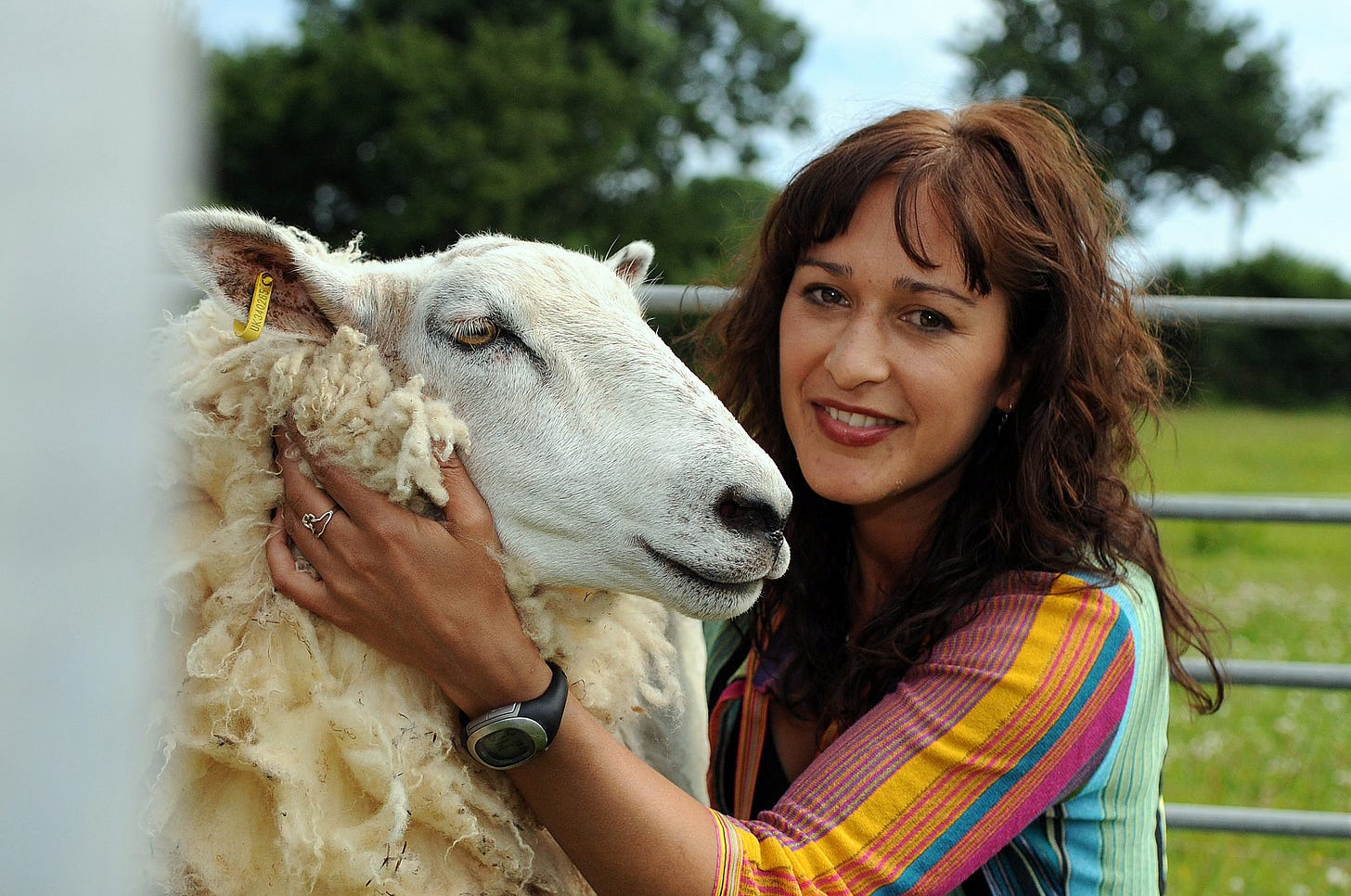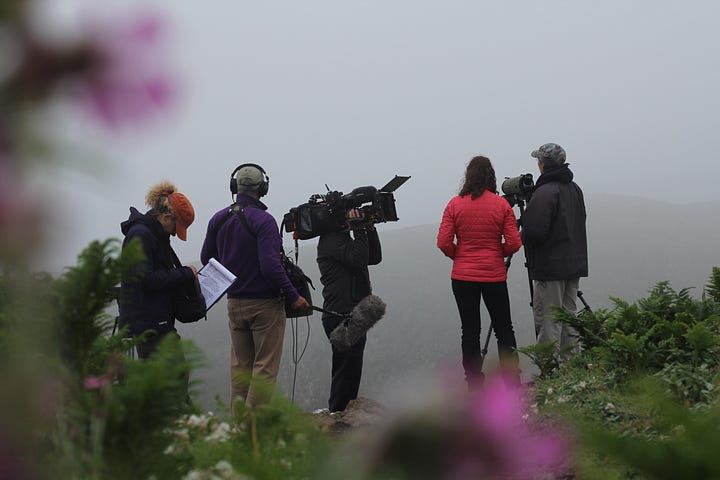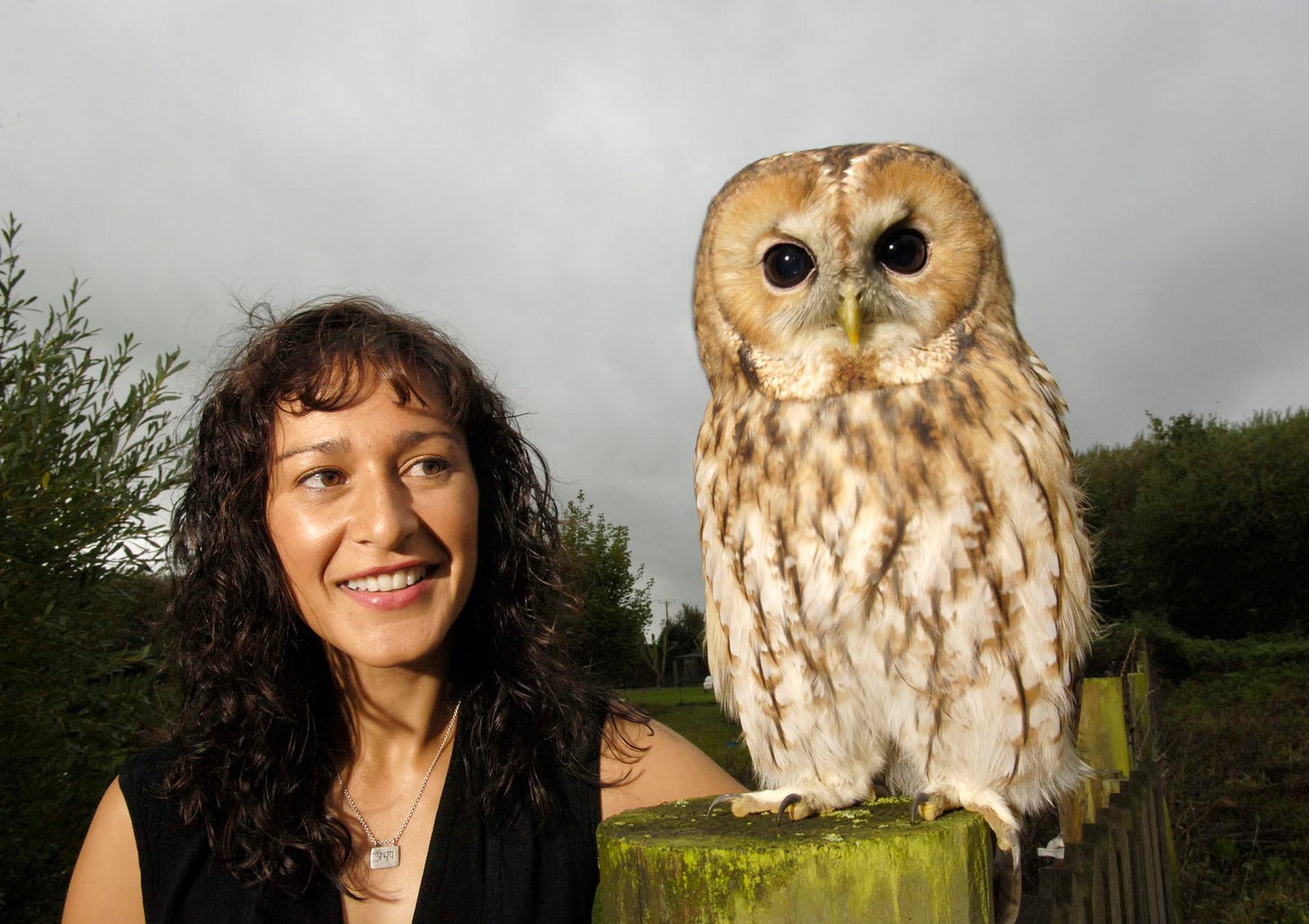How Writers Really Earn a Living: Practical Advice to Help You
And what you can do if your books don't pay the bills
Did you know that only 2-3% of writers make a living solely from their published writing?
If you’re new to Wild Writing with Sanjida, welcome!
I’m Sanjida. I write about writing, wildlife and wilderness. I’m an award-winning writer. My latest short story has just won a Crime Writers’ Association Dagger. I’ve been published professionally since I was 18. I’ve received five-figure book deals. I’ve had over twelve books published so far. Some of my books have been optioned for television and the rights have been sold to Europe and the States.
And yet, I would not be able to carry on writing and pay the mortgage if my husband didn’t have a stable job (that’s not in the writing industry!), and I wasn’t juggling numerous other jobs and side-hustles.
Here’s my story about how writers can earn a living, what really happens - and what you can do to make ends meet.
According to a recent Society of Authors survey, the average writer in the UK earns £7000 annually, which is several thousand pounds below the minimum wage and a third of the amount the average supermarket cashier earns.
Writing for a living can be a rollercoaster: there’s the highs of book publications, festivals, reviews, blog tours; the lows of rejections, paucity of book deals, Amazon one-star reviews, and this is before one even begins to discuss money, something which is rarely honestly disclosed.
So, how do writers earn a living?
First, it might be useful to look at how authors actually make money from their books, before we look at how one might fill in the gaps and breach the inevitable shortfall.
The most obvious way that authors earn a living is through an advance. This is when a writer signs a book contract with a publisher and receives an up-front fee. The rest of the advance is usually split into thirds or quarters and paid at intervals, such as on delivery of the book, publication in hardback and then paperback.
If the book makes more money than was paid to the author for the advance, the writer will also receive royalties, which is a set amount per book bought. Then (in the UK) the Authors' Licensing and Collecting Society and Public Lending Right collect and distribute payments to authors every time someone copies, records, broadcasts or borrows a book.
The book may make the author more money if it’s a) sold to other countries, b) sold as an audio book or CD, or c) optioned for film rights (which is where a film company buys the rights to sell the story as a film or TV series to a broadcaster, like Netflix or the BBC).
The big bucks are if the book is actually made into a movie, as a much larger fee is paid to the author, followed by other potential income streams, for instance, being hired as a script writer or a consultant for the movie, or even merchandise spin-offs (think of Harry Potter!).
However, anyone discerning will be able to see all the ifs, buts and maybes in the above list. Will your book be published? How much will you be paid for it? Will anyone buy it? Borrow it? Will the foreign rights sell? Will a media company option it?
And here is the kicker: if, for whatever reason, your book does not outsell the advance, it will then become very hard to obtain further book deals, no matter how excellent your writing is.
Which means, as children’s author, Kiran Millwood Hargrave says, it is difficult to predict how much income you will earn in a year, let alone have anything approaching a long term career plan.
“Our financial institutions are hostile towards self-employed people, particularly self-employed creatives. I spent a frustrating hour on the phone to my bank recently explaining that I couldn't even give them a ballpark figure for my forthcoming year's income as I have no idea what my royalties or book deals will be.”
Kiran Millwood Hargrave
What else can writers do to earn a living?
So what can writers do? Well, unless one has an independent income or a wealthy and understanding partner, one can obviously get a job. The trouble with this is that usually the hours and energy required for paid work, don't allow the time and space to write. And if you are successful as an author, the extra time you’ll need to write (usually for free) blogs, do interviews, step up your social media output, go on book tours, give book signings and attend festivals in order to publicise said book and attempt to ensure your longevity as a writer, is hard to fit in with a normal career.
When I started out as an author — I had my poetry published in an anthology and short stories in a magazine when I was 18 and my first novel came out when I was 25 — I worked as a freelance features writer for national newspapers and was a TV producer/director and then a presenter for the BBC.

Once I was established, it was a lucrative enough career that now and again, I could afford to take a few months off to focus on my writing. In between those rare, short but wonderful sabbaticals, I would get up before 6am and write for two hours before I went to the office.
However, once I had a family, I could no longer get up early enough to write —as anyone with children knows, the morning routine begins pretty darn sharpish. Worse, I could no longer do my previous jobs as they required long hours, travel and extremely tight, changeable and unpredictable deadlines.
If it hadn’t been for the Royal Literary Fund, I very much doubt I’d have been able to write and publish my last four books and two short stories. The RLF exists to support writers (and also has a hardship grant available for people who may not be able to work due to illness or caring responsibilities, for instance).
I worked as an RLF Fellow for two day’s a week mentoring students with their writing at a university (the current salary is £16,000 a year), which enabled me to write and publicise my books for the other three days a week (and pay nursery fees).
This is one option available to writers — working as an RLF Fellow or taking a part-time job — to enable one to have time to devote to one’s writing. Single parents, though, may not have the luxury of taking on part-time work.


What options are there for writers?
Another option open to published writers is to teach. I run writing workshops for teenagers, writers and academic students and staff, and offer mentorship and literary consultancy to writers via my website.
Organisations like Faber, the Guardian Masterclass scheme and the Arvon Foundation, are willing to pay authors to deliver creative writing tutorials and workshops. YA and children’s writers can also deliver workshops to schools. It is also possible to join a company like The Literary Consultancy (TLC) and become a manuscript consultant.A further option is to write articles, book reviews, host podcasts or even run your own Substack (as Emma Darwin and I do).
All of the above is a hustle, a juggle and a struggle, not only to chase and secure the work, but then to make ends meet. For instance, many manuscript consultancy companies usually pay below the minimum wage, once you’ve factored in actually reading the manuscript before beginning edits and then writing a report and / or meeting with the author to discuss their work.

There is no doubt about it. Freelance work, particularly freelance writing-related work, is unpredictable. It is hard to schedule. It is difficult to carve out the time to actually write when most of us can’t turn away work since we don’t know when more might arrive.
Not long ago, I had a meeting with my agent. We are hoping to send my thriller out to publishers soon. Obviously I would like a book deal. I’d also like a film deal so that I can actually make a reasonable amount of money to live on.
There is zero guarantee that I will get either of these things.
“I just want to stop doing all the other stuff,” I said to my agent in a slightly whiny voice, “ so I can focus on my writing.”
He nodded sympathetically and agreed that it is tough to balance paid work and writing. “But,” he said, “imagine if you were properly famous. Then you’d have no time to write either because you’d be reading film scripts and fielding questions from agents and editors and being asked to donate money or give interviews."
I do enjoy “all the other stuff.” I like talking to people about their writing, being a mentor, running workshops and posting on my own Substack.
But I do it because I love writing even more and I’m prepared to be so much poorer than I was when I worked in TV. I also recognise that I’m hugely blessed to have a partner who earns more than me and knows exactly how much he’s going to bring home every month.
Above all, I enjoy the process, the simple act of putting words on a page, because that is all that we can control in this rollercoaster of a writing life.
This post was originally published as Writing for Living in This Itch of Writing by
You might like my other essays on the craft of writing, which you can find in The Process.
Prefer wildlife? My nature memoir and notes about our rewilding project are in Wilderness.
Don’t feel able to Subscribe? Perhaps you’d like to support my writing by buying me a coffee instead?
Let me know what you think. Are you a writer? How do you make a living?








I second all of this! I'm starting as an RLF Fellow this year and your experience has emboldened my choice to do this as a way to support a new writing project. Thanks, Sanjida!
A great post, right when I needed it. Thanks, Sanjida!